#transgender character
Text
Trans Character of the Day
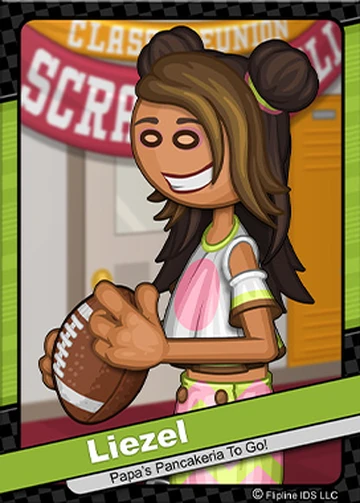
Liezel from Papa Louie is a trans woman and uses she/her pronouns!
#flipline liezel#liezel#papa louie#transgender character#trans character#transgender#canon trans character#trans characters#trans character of the day#she/her#transfem character#trans woman
165 notes
·
View notes
Text
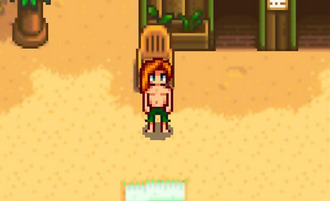
That man (Elliott from Stardew Valley) Is Trans!
[Image ID:
Elliott from Stardew Valley standing on the beach in front of a building. He stands in front of a chair, staring off into the sea which isn't shown. He has long ginger hair that's combed mostly to the side, and brown eyes. He wears only a pair of green pants that are rolled up at his knees.
End ID.]
#that man is trans#trans#transgender character#stardew valley#stardew#sdv#elliott stardew#stardew elliott#elliott sdv#sdv elliott
73 notes
·
View notes
Text
why mizu is, in fact, not cis
Everyone is very angry at everyone about how to see or not see Mizu’s identity; being unable to shut up, and having fixated on the show a bit, i’m excited to finally join my first to-the-death-tumblr-discourse-battle.
I'm going to use mostly he/him for Mizu, but please read the premise below. Read the colored strings of text 😭
The main argument for Mizu being a woman is that which has as its basis the fact that cross-dressing is for Mizu an external need: for one, it is a need for protection from patriarchal bonds; secondly, it is a need for independence - Akemi’s story is one of independence as well, of feminine independence, and we have more than one woman pursuing such thing; we could go on with an analysis of brothels as a feminine space, but, alas - and thirdly, it is a need of obligation: Mizu needs to maintain the masculine identity in order to attain the object of his vow.
I find, however, that while the argument stands as perfectly sound (and as canon) it isn’t exhaustive enough of the layered experience of gender in BES.
The trans coding is simply undeniable to me, whether it was intentional or not. I do not mean to say that Mizu is a binary trans man; that would be an approach as reductionist as confirming she is exclusively a woman. However, I find that some behaviours of Mizu’s are coded as dysphoric reactions.
Most of my justifications for this reasoning come from episodes 2, 5 and 8.
In episode 2,
Ringo is vowing to never reveal Mizu’s secret: “I’ll never tell anybody you’re a g-“; and as soon as he’s about to say girl, Mizu is just as ready to slice his throat. Mizu being worried about someone else hearing or witnessing the interaction doesn’t seem completely plausible to me: they’re alone in snowy woods, and, most likely, Mizu wouldn’t have confirmed time and again how readily he’d kill Ringo.
Then comes episode 5,
which is in my opinion the most layered and the most exhaustive in regards to Mizu’s experience of gender, especially regarding his experience of the feminine. First and foremost, it tells the ultimate teaching: that gender isn’t but a performance, just as the gender roles are portrayed through theatre in the episode. As for the dysphoric reaction, it's the whole thing. Mizu is miserable even when we suppose that the marriage could be a relatively happy time. That's another reason why I suppose the puppet theatre tells Mizu's internal sense of self as well (see paragraph 4).
(And, about gender being performative, see how kabuki theatre was born in the Edo period and how, before being banned from acting, women cross-dressed to play male characters, and men cross-dressed to play female characters. See “professional transvestites” trained to be prostitutes, Kagema being trained from a young age to „act" like members of the other sex; see how by the beginning of the 18th century AFAB sex workers would try to figure out a way to set themselves apart from wakashu, creating an entirely new space for female crossdressers in the adult entertainment sphere; see ukiyo-e representations - chigo monogatari and yukiyo-zoshi literature; stories by Ihara Saikaku that are full of "transgender behaviours" and more)
Back to ep 5:
1. Theme of performance
The theme of performance, which also is the one of Mizu performing femininity for Mikio (in function of the well-being of Mizu’s mother), but being at once unable to suppress masculinity as the only space in which Mizu seems to be comfortable: e.g., it’s a little detail, but Mizu’s only good in the kitchen when cutting vegetables, because comfortable with blades, certainly not with cooking; again Mizu having to perform femininity is when he does makeup to “make-up”, to soften Mikio’s spirit, who feels invalidated by Mizu’s masculinity when it starts to interfere with his pride, and such other details; I even thought of the sword as a symbol for “learned” masculinity: the first time this thought occurred was when it was characterized by sensuality in the scene where the spouses spar: “Unsheathe it. Let me see your blade;” and I interpreted it as masculinity being the only space that allows intimacy as well; then comes the time where Mizu learns he does not need a sword to fight, meaning to me that she can embody masculinity without having to prove it to others. And then comes the reforging of the sword’s meteorite to include “impurities”, and the rite that Mizu performs. I assume that “a sword too pure” is the symbol of, again, learned hypermasculinity to appease patriarchal expectations, and is too pure because it’s Mizu rejecting part of himself, trying to exclude all “impurities”, whether they are being half white, or being half woman. Taigen himself is the one to tell Mizu he can fight without a sword (ep 7, but done in ep 3 or 4 and ep 6 already), and then the situation starts to bear sexual tension, which I directly link to the sensual connotation of the sparring cited earlier up. Possibly, this particular situation could also mean acceptance of Mizu's lack of a native "sword".
2. Gender roles
But a more sound consideration is (i would like to hope so) the one about the whole marriage being told through puppets, and the puppets themselves. While they are different characters, first of all we see an inversion of gender in the roles: at first Mizu is the Ronin because he performs a masculine role of protection, an “active” role; then, Mizu’s role is reversed in function of his marriage. We see Mizu surrendering (forcibly, being manipulated) to femininity as soon as his mother guilt-trips him into marrying, and the ronin puppet assumes a submissive pose, long before the role reversal.
3. A note:
it yet does not seem to me like the role reversal is, so to say, complete: even after the reversal, the narrator tells details about the ronin that are actually details about Mizu, e.g. when the two marry, and despite the positions of the puppets match the ones of the spouses, it is said that the ronin's loyalty is no more turned towards his "path of revenge," (Mizu's) "but to his bride" - in the perspective explained below, perhaps Mizu's own femininity. Also, i find Mizu might perceive Mikio as the bride, and himself as the husband - as an argument it can't stand alone, or it would bare no strength, but I will use it in correlation with the other points made, until now and later, to argue that Mizu thinks of himself as a guy.
4. Performance of Mizu's sides, assimilable to when she has the vision of killing his white side, shortly before facing the four fangs or whatever their name was
This, and one more tiny detail, bring me to think that not only do we talk about external roles, but about Mizu’s self-perception. I'm referring to when it is said that “for the first time in many years, the ronin felt the storm rage inside him.” The storm is a symbol belonging to Mizu (literally it occurs in the first 2 minutes of the episode), and it is explicit that it isn’t something that happens for the first time, but rather returns. By this point, the gender roles were reversed, and yet it seems to me like it isn’t anymore about the marriage itself, but rather about Mizu’s hatred for and slaughtering of his own femininity, and, of course, the experience of betrayal; with his family (especially his mother, see below), and with his femininity, which wasn’t enough to keep him comfortable or Mikio on his side. (...betrayal which is also about mizu himself betraying akemi, i'd add. Mizu is justified here, but it's important to note the parallels between the two timelines i guess?)
5. That random ass baby
There is, at a certain point, a situation of peace, which I think is represented when one of the puppets is holding a blue baby (supposedly a little ronin) in its arms. I want to suppose that the baby represents newborn love between Mizu and Mikio, before it all fell apart. But the love itself is a masculine love, as we see that it is based on masculine exchanges (fighting, doing fieldwork, taming horses, riding together, whatever) and, it seems to me, assimilable to homosexuality between samurai, which was widespread (insert something about Taigen here). Also Mikio wanted to marry a bro lmao. Aside from that, on the level of Mizu’s self-perception, it might represent comfortableness, a sort of congruence, or, rather, a compromise, that Mizu is able to live in, between natural masculinity and performed femininity - opening up to show vulnerability, love fragile as a creature that cannot defend itself, innocent, naive, trusting.
6. About Mizu’s mother.
The puppet used for Mizu’s mother before the role reversal is the same that is supposedly used for Mizu after, but I latch onto a detail: the pattern on the puppet’s kimono is the same as the (real life) Mother’s kimono (see for example minute 12:30). I support this by noting the more obvious parallel between the blue worn by Mizu and the blue of the Ronin puppet, but at the same time I'm forced to note that after a certain point the mother has her own puppet. In any case, I see the mother and the feminine puppet wearing the same kimono as being about femininity, and about the mother’s betrayal of her child, rather than about Mizu herself. For one, manipulating him into marrying and abandoning the vow. But also we learn (ep 8) that the woman isn’t Mizu’s mother at all. One could discuss the reliability of Fowler’s statement, but I feel there are more clues regarding the mother’s betrayal: the episode starts with the Ronin, who feels the storm rage inside him at the killing of his lord (Mizu’s actual mother, perhaps) by the hands of a clan whose crest was the Phoenix (which I suppose are the white men, and the curse of whiteness for Mizu). I’ve thought about the four white men dealing guns (Fowler), flesh, opium (and I’m not sure what role “Violet” has in this, but I think they're the opium dealer), and thought that if Mizu’s “mother” was a substitute, the opium she smokes could point to Mizu’s potential father, perhaps even at the surrogate mother keeping contact, and at the surrogate’s betrayal at the same time. But it’s also true I watched the show while stoned, so I would dismiss this.
7. Onryo (note: characteristic in kabuki)
When the birth of the vengeful spirit occurs, I see very well how plausible it is to say that, actually, the rage that Mizu feels is feminine rage, and I agree with that. Mizu’s femininity is his rage, it is heavily related to the mother-daughter relationship, despite the fact that at a certain point the mother has her own puppet. At the same time, however, it is to me the result of the slaughtering of the performed femininity needed to respect the obligation (we remember the wedding was also to ensure the “surrogate” mother safety, especially financial, as well as to keep Mizu bound), just as accepting you’re able to fight with any tool puts an end to the compensatory movement by which you’re trying to prove masculinity to an observer (which, say, Taigen does as well, wanting to prove to Mizu he can beat him - plus, Taigen himself is the one to reassure Mizu on the complete unimportance of it, see how I read the sword symbol a few paragraphs earlier).
In this perspective, the "dye washing away from her kimono" to me means two things: that being what he is is inevitable, and that the feminine rage sets in; Mizu tries to make up for being a "demon", but in the end rejects the obligation towards his husband, and towards her mother; the pattern is not the same anymore, and Mizu is somehow more like his own person, returning on the path of vengeance, strengthened by the feminine, as the reforged sword will be strengthened by the very ritualistic yaki-ire.
--
Episode 8,
I feel, speaks instead for itself, for the dysphoric reaction is to me extremely clear. Reacting that way to being called a Miss is not a cisgender reaction. You’ll tell me: it’s not a dysphoric reaction! It’s a reaction of disgust to being fetishized for being a woman! And that’s plausible, supported by the “you just keep getting better,” with clear sexual implication, except I think that is also a fundamental trans experience and one cannot limit the way they read the scene to an exclusively feminine experience.
In conclusion,
I don’t think it might be all boiled down Mizu being a masc woman, because of the trans coding. Mizu thinks of himself as a guy. If not a guy, not a woman either. You’ll tell me: “Of course she does, because she’s grown up that way; she was forced to sustain the lie to preserve her life! It's a matter of conditioning!” And while it is true that the initial context points towards crossdressing, and not inherent feelings of gender non conformity or transgenderism, I feel that if Mizu really felt like a woman, he wouldn’t have such exaggerated reactions, and I don’t think they come from his temperament either. And it is disproved that conditioning someone to have a different sexuality or gender identity works in any way - I doubt Edo period Japan or a particular protagonist would make an exception. "But Mizu herself tells Mikio she didn't want to be a man, she had to be one!" Yes, because it is true. But it points to crossdressing. If it were aimed to explain the whole of Mizu's experience of gender in her self, it would invalidate the entirety of episode 5.
In any case, even in situations where he couldn’t be discovered, Mizu does not allow feminine terms or titles, or tries as best to stop them from happening; plus, it’s rather obvious how difficult the relationship with his body is.
While, once again, reading Mizu as a binary trans man is not enough, I feel like reading him as cisgender isn’t, either. As if, in any case, the feminine experience and the transmasculine one didn’t overlap in many aspects, also during the most tumultuous parts of transition, if pursued.
What is funniest above all is that the whole discourse is substantially useless. The layers of the show open to an infinite variety of interpretations, none of them fundamentally wrong. Mizu’s just quite literally Mizu. It’s a queer unlabeled thing and that’s it. If you take the Lacanian concept of the Real as the hole, properly uninteligible, surrounded by the Symbolic, you'll find that "Queer" is exquisitely representative of the Real, and therefore every label (the Symbolic) is reductive of the perceived experience (indeed the Real). The fundamental lesson about gender that you can derive from the show is that gender is a performative construct. What it pushes you to do is deconstruct your principles, especially if you are queer, since we are all entrapped in the modern western white need for strict labelling; that’s where this whole debate comes from, and it is, once again, pointless.
So, instead making fun of other people because of a set of pronouns, perhaps it would be better to imagine that more options can cohabit together, or that there is no need to label at all. Also be careful about accusing others of a complete lack of media literacy - you should thoroughly examine yours first.
Interesting articles i guess:
--
Algoso, Teresa A. "'Thoughts on Hermaphroditism': Miyatake Gaikotsu and the Convergence of the Sexes in Taishō Japan." The Journal of Asian Studies 65, no. 3 (2006): 555–573.
Algoso, Teresa A. "Not Suitable as a Man? Conscription, Masculinity, and Hermaphroditism in Early Twentieth-Century Japan." Chap. 11 In Recreating Japanese Men, edited by Sabine Frühstück and Anne Walthall. Berkeley: University of California Press, 2011, 241–261.
Mostow, Joshua S. “The Gender of Wakashu and the Grammar of Desire.” In Gender and Power in the Japanese Visual Field, edited by Joshua S. Mostow, Norman Bryson, and Maribeth Graybill. Honolulu: University of Hawai’i Press 2003, 49–70.
taken from this post asking about transgender men in the edo period: https://www.reddit.com/r/AskHistorians/comments/p6x4jk/comment/h9ttgv4/?utm_source=share&utm_medium=web3x&utm_name=web3xcss&utm_term=1&utm_content=share_button
As a final unrelated note, I haven’t seen anyone praise the MASTERFUL sound design
bye 🪳🪳🪳🪳🪳
#blue eye samurai#bes#mizu blue eye samurai#queer#queer coding#trans coding#mizu#media analysis#mizu gender#mizu trans man#mizu transgender#in this essay i will#mizu trans#mizu bes#nonbinary#genderqueer#transgender character
60 notes
·
View notes
Text

TRANS MEN CAN WEAR DFESSES OKAY?? 🏳️⚧️ 🏳️⚧️
#our memes#meme#memes#greydancer#trans#transgender#trans meme#trans memes#transgender meme#transgender memes#plush meme#plushie meme#stuffie meme#stuffed animal meme#plush memes#plushie memes#stuffie memes#stuffed animal memes#trans guy#trans man#trans character#transgender characters#trans characters#transgender character#aurora plush#aurora#plush#plushie#stuffie#stuffed animal
37 notes
·
View notes
Text
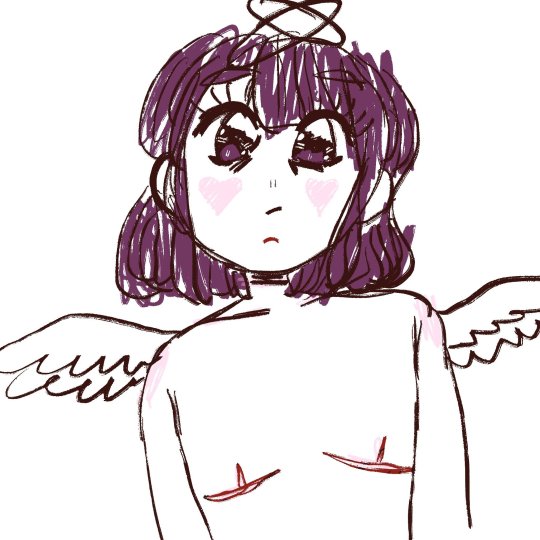
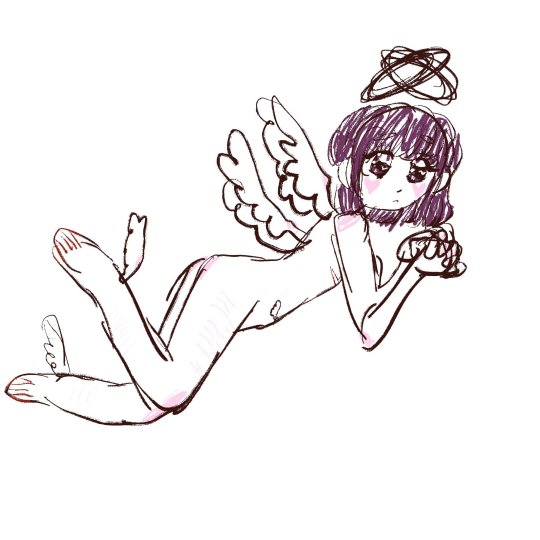




older art of my nonbinary angel OC, Seraphim, or Sera - Faith
#faith's art#my ocs#vent art#angel#seraphim#angel oc#nudity#artistic nudity#angel art#trans#transgender#nonbinary#top#top surgery#top surgery art#trans art#transgender art#trans artist#transgender artist#nonbinary art#nonbinary artist#original character art#original character#drawing#art#digital art#digital artwork#trans character#transgender character
43 notes
·
View notes
Text

*transes your blorbo*
HE'S MY BEAUTIFUL BOY AND I LOVE HIM SO SO MUCH????
You can support me on KoFi 👉🏽👈🏽
#mila-beedoodling 🐝#artists on tumblr#fanart#drawing#miraculous ladybug#miraculous ladybug fanart#adrien agreste#ml adrien#ml fanart#trans character#trans adrien agreste#trans masc#transgender#transgender character#LOOK HE'S SO SO BEAUTIFUL
214 notes
·
View notes
Text
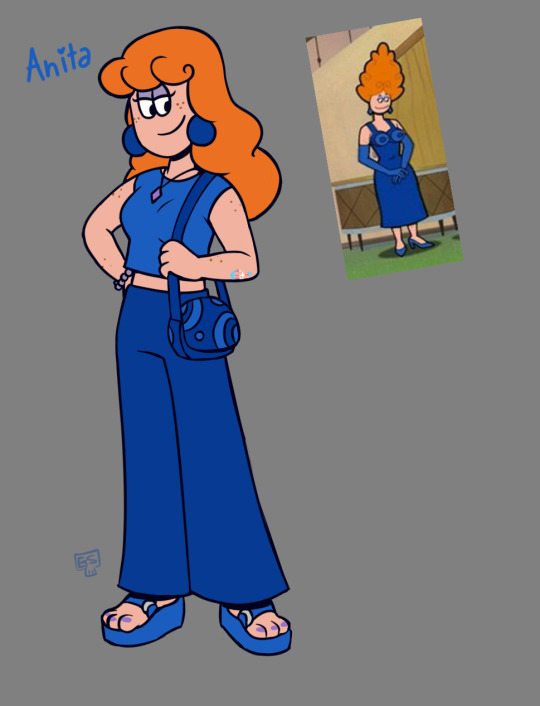
Anita Bidet 💜💙
I recommend watching this video!
The Forgotten Transness of The Oblongs
#Anita Bidet#Anita is one of the best characters from the show#same with Pickles#The Oblongs#transgender character#trans women#fanart
43 notes
·
View notes
Text
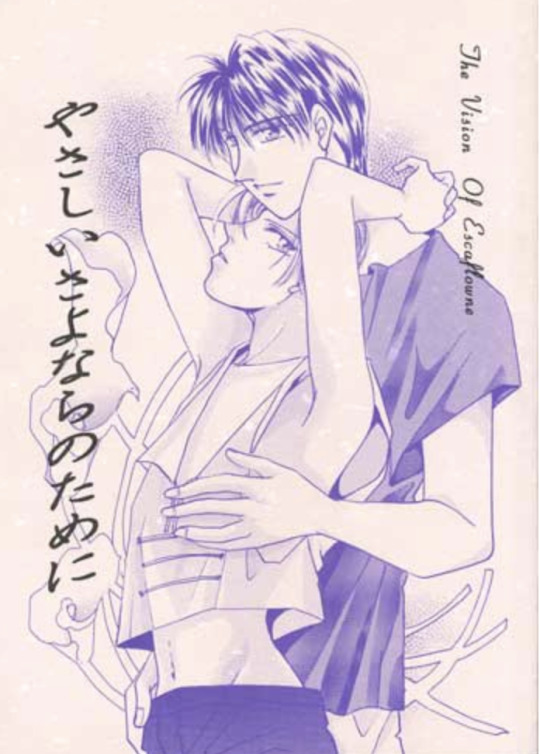
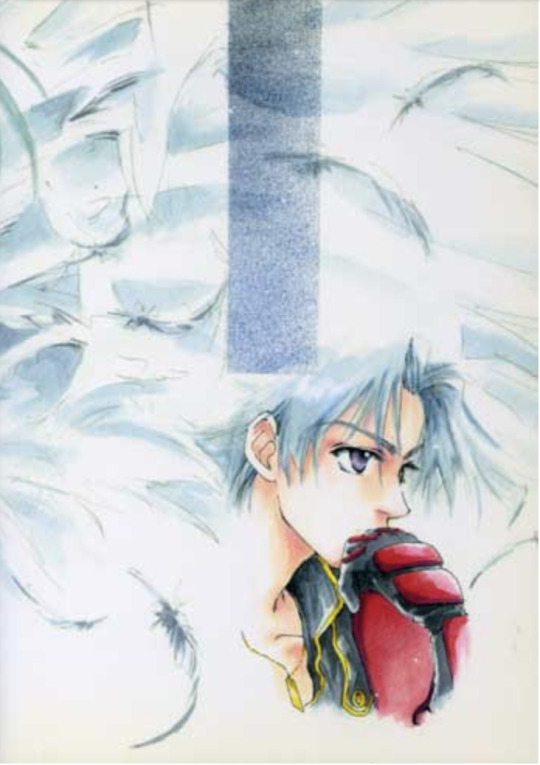
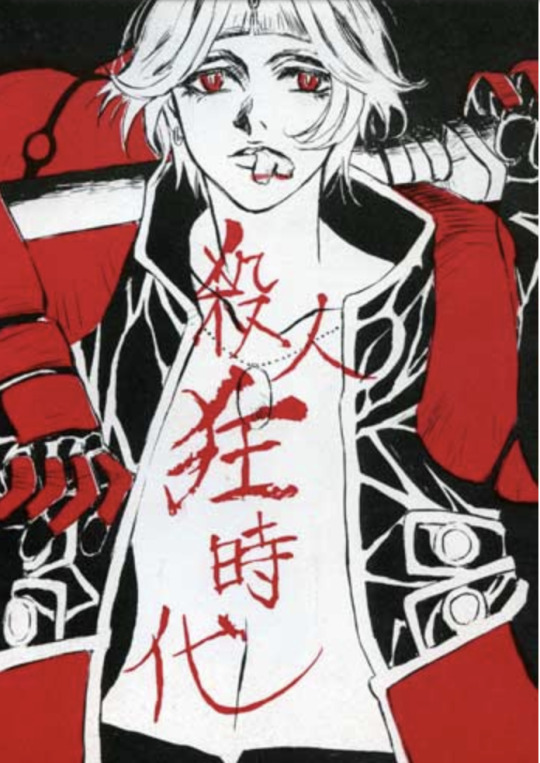

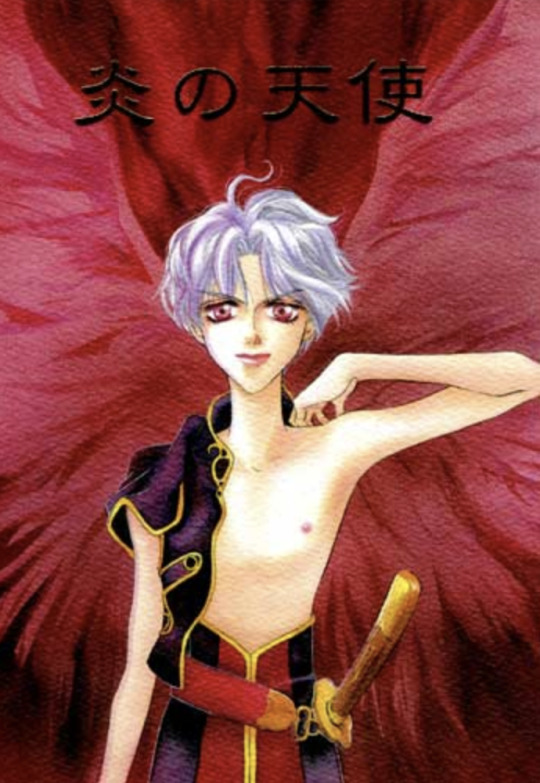
I recently found some Escaflowne doujinshi covers I screenshotted a long time ago from a vintage fansite I found on the Internet Archive. I don't have credits or titles for the doujinshi but I thought the community might enjoy seeing them. If anyone knows the artist credits, please add them in the comments.
It is so interesting how different artists depict Dilandau, either playing up the feminine or masculine characteristics of my favourite character. My favourite piece is the stark black, red, and white artwork of Dilandau, showing their ferocious side in its full glory.
I have my own unique way of drawing Dilandau too, with a lot of influence from 19th century art of Joan of Arc and from Keiko Takemiya's iconic character Gilbert Cocteau from her controversial manga series Kaze to Ki no Uta.
#escaflowne#vision of escaflowne#tenkuu no escaflowne#anime#escaflowne doujinshi#doujinshi#anime and manga#manga#manga art#doujin#tenku no escaflowne#escaflowne a girl in gaea#escaflowne characters#escaflowne fan art#escaflowne fanart#the vision of escaflowne#visions of escaflowne#escaflowne fandom#dilandau#dilandau albatou#transgender character#transmasculine#mediaeval#medieval#knight#knightcore#knights#warrior#artwork#90s anime
16 notes
·
View notes
Text

(click for better resolution!)
I decided like forever ago to redesign the Ladybug suit to be more masculine and a bit more accurate to how an actual ladybug looks as a visual aid for whenever I get around to the trans au that I said I was gonna write…. Maybe. Who knows if it’ll actually happen.
Anyway, in my usual fashion, this has been sitting in my WIP folder completely finished and unposted but then my mutual @siphisket yelled at me and told me I was grounded until I posted some art lol
#miraculous ladybug#male!marinette#trans!marinette#marin dupain cheng#idk what else to add here#i haven’t really posted much in regards to the miraculous fandom#fan art#payper’s art#I also have not been keeping up with ML at all#adulting is exhausting#and hard#and leaves no time for fun#transgender#transgender character
241 notes
·
View notes
Text
Trans Character of the Day

Ashton Greymoore from Critical Role is transgender and uses he/him and they/them pronouns!
#ashton greymoore#trans character#transgender#canon trans character#trans characters#trans character of the day#he/him#they/them#transgender character#critical role#bells hells
80 notes
·
View notes
Text

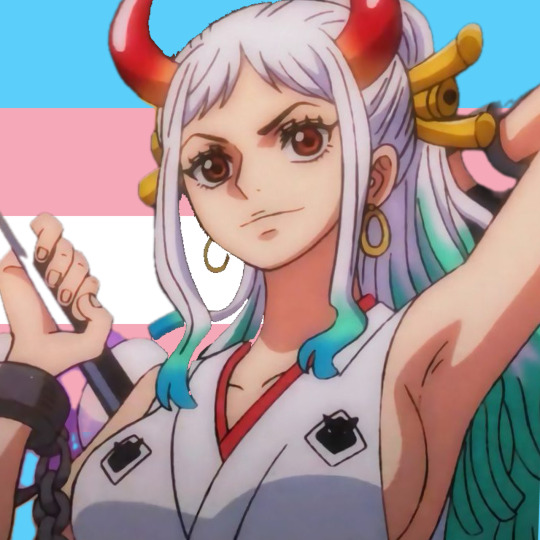
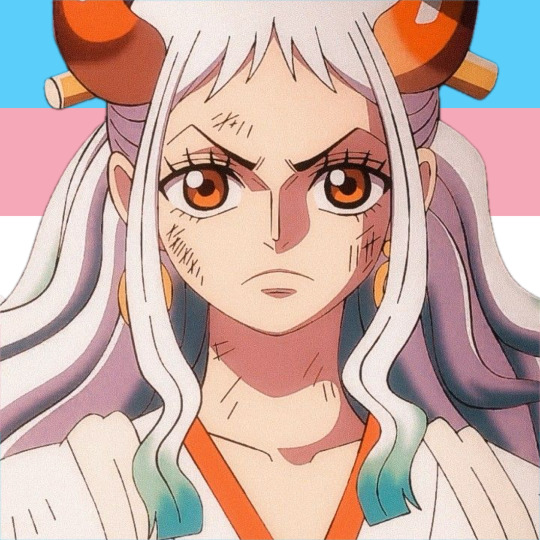


🏳️⚧️ Trans Yamato icons for Trans Visibility Day 🏳️⚧️
14 notes
·
View notes
Text

That Man (Ashe Ubert from Fire Emblem: Three Houses) Is Trans!
Bonus Fact: This is my scroingy :)
[Image ID:
Ashe Ubert from Fire Emblem: Three Houses, making an appearance in the Fire Emblem mobile game by the name of Fire Emblem Heroes. He has short silver hair and green eyes, his nose dappled with freckles. He wears a loose sea-blue summer hoodie and knee length blue shorts with purple and light blue detailing. he holds a fishing spear that already has three different fish stuck on it. He is in an attacking position.
End ID.]
#that man is trans#trans#transgender character#fire emblem#fire emblem three houses#fe3h#fe16#fire emblem heroes#fe heroes#feh#ashe ubert#ashe duran#ashe fire emblem#fe ashe
56 notes
·
View notes
Text
So... started playing PMD: Explorers of the Spirit, then got inspired to do an art
Introducing, Team Broadway!
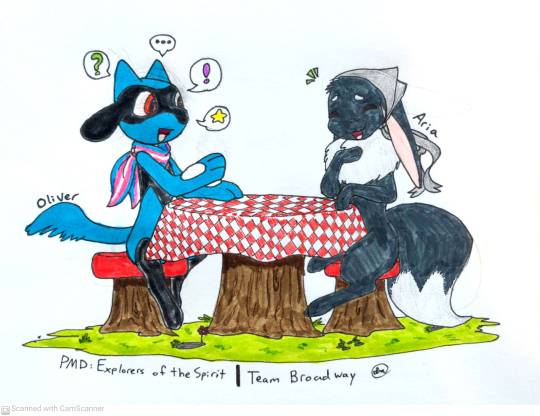
Got Stately Silver on the aura test and Eevee for my hero, so it just made sense that Aria would be shiny.
I'm only on like... chapter 3 so far, but I'm super excited to see how the story plays out!
#pokemon#pokemon art#PMD#pmd eots#riolu#eevee#shiny pokemon#transgender character#semi-self insert#my OCs#my art#pokémon
35 notes
·
View notes
Text
This King of the Pirates is Transgender!!
Luffy means a lot to me, especially in regards to my own transition

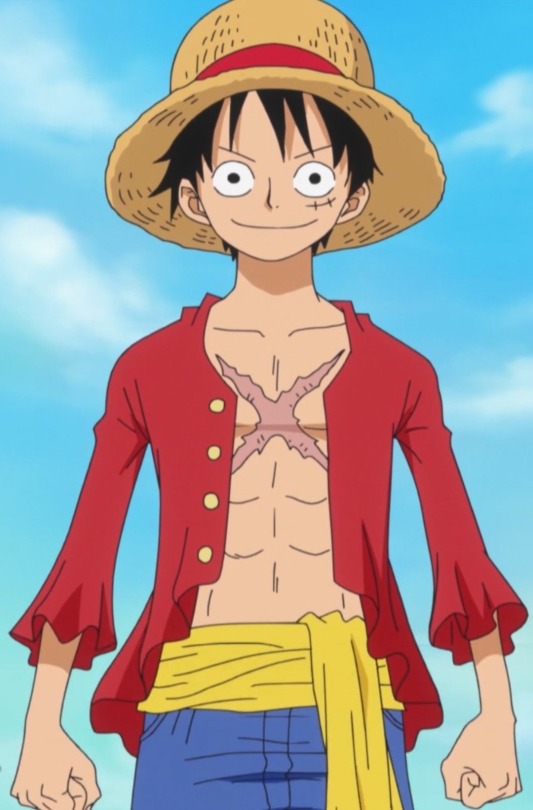
#pandassketchbook#colored pencil#ink#traditional art#Luffy#One Piece#One Piece Luffy#OP#Luffy OP#transmasc#transgender#transgender character
45 notes
·
View notes
Text
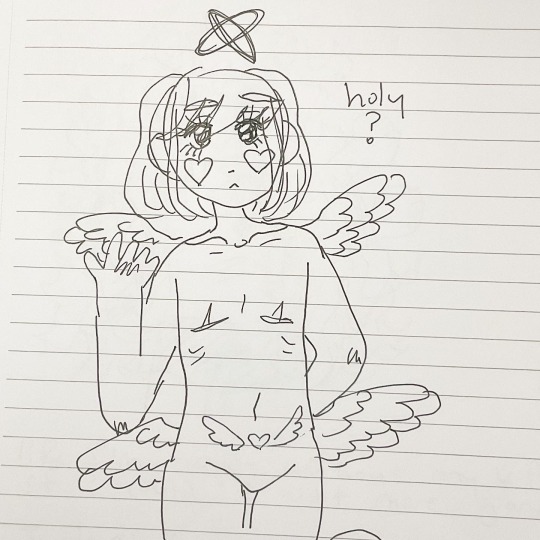
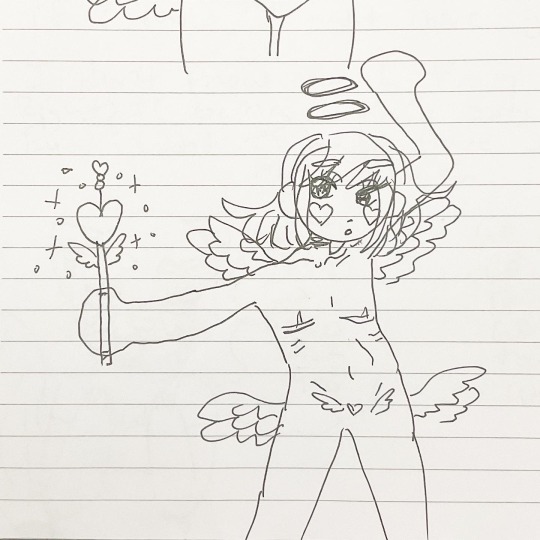
old traditional Seraphim drawings - Faith
#faith's art#my ocs#seraphim#angel#angel art#angel oc#top#top surgery#top surgery art#trans#transgender#nonbinary#trans art#transgender art#nonbinary art#trans artist#transgender artist#nonbinary artist#trans characters#transgender character#nonbinary character#nudity#artistic nudity#art#artwork#digital art#digital artwork#original character art#original character#drawing
20 notes
·
View notes
Photo

twin size mattress
Louis Tomlinson likes Harry Styles, and he is comfortable acknowledging this fact now, two weeks after ending things with Hannah. The summer being almost over, though, is not a fact Louis is okay with.
In four days Harry will be gone and Louis will start his last year in sixth form, and will have to study for stupid A levels. Louis will be here, with all of his useless knowledge, and Harry will be in fucking picturesque Holmes Chapel, Cheshire, eighty four miles away, with the answer to the one thing Louis desperately wants to know: Do you like me back?
Or, Harry is a girl, Louis is a boy, and this is the story of the mattresses they share (and the ones they don’t)
81 notes
·
View notes